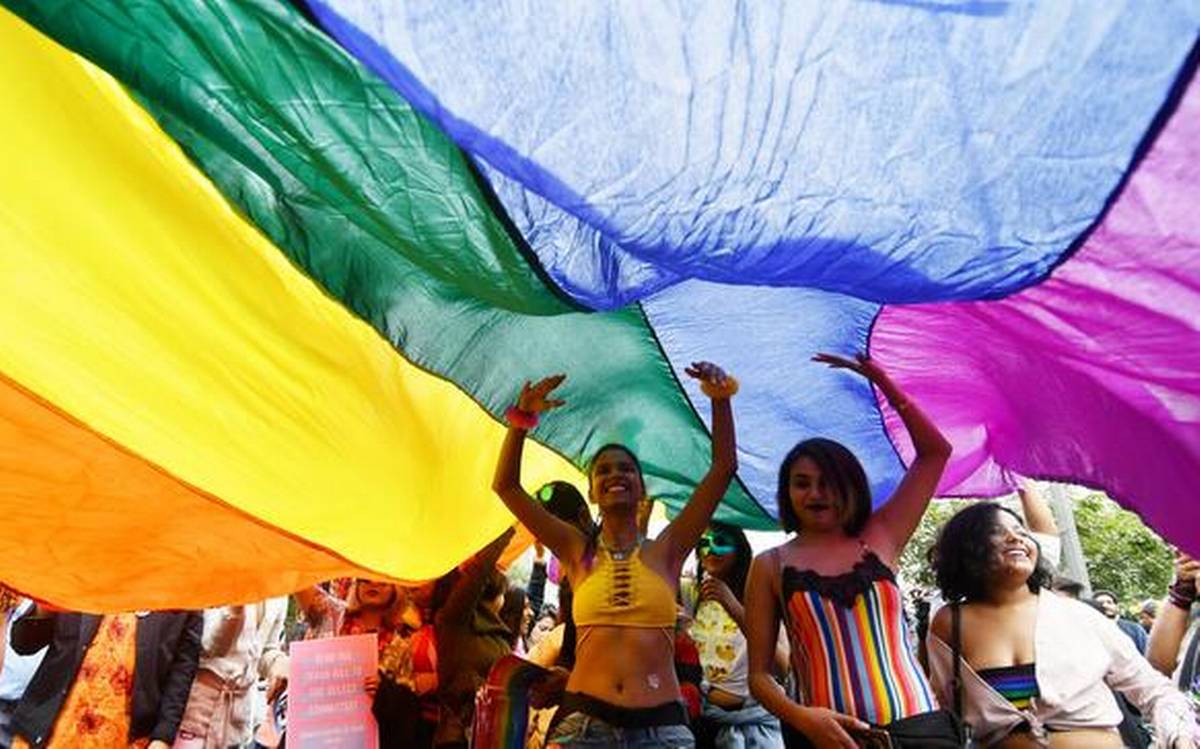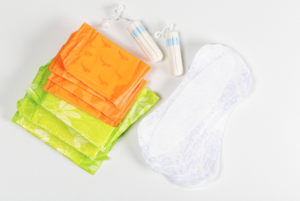Need to make menstrual products gender neutral: Trans activists

Transgender community as equal participants in the menstrual experience is missing in India (MIG Photos)
On the way back from a recent camping trip, Rupanshu George stopped at a public washroom. But first, he counted the cars in the parking lot. Then, walking into the corridor, he glanced at the checkout counter (was a man or a woman handling the register). And then, he scanned the place, looking for signs that anyone would be hostile. Then, finally, they checked the bathroom situation. Was there a single stall bathroom that everyone used? Or multi-stalled men’s and women’s rooms? The latter could be dangerous for George.
The possibility of harassment in a public bathroom is always on George’s mind, but it is especially pressing when he has to deal with menstruation. “You always have to scout out exactly what the scenario is before you can even think about going to the bathroom,” George says. “Because the fear of violence enacted against a transgender person for using the ‘wrong’ bathroom is still very real,” he adds.
George, for example, has been told to leave both the men’s and the women’s bathrooms because someone clocked them as a woman or a man, respectively, and decided that he should not be there. That kind of misunderstanding makes it even more difficult for trans men to deal with and talk about their periods than it is for cisgender women, who still deal with plenty of shame and stigma about menstruation.

Transgender say those menstrual products are categorised as women’s products & they avoid purchasing them altogether
The focus of the movement around menstruation in India has mostly revolved around period poverty. A majority of the population of girls and women undergoing menstruation are denied access to menstrual products, because of the financial burden of purchasing those products. However, the place of the transgender community as equal participants in the menstrual experience, the conversations surrounding the challenges and stigma of menstruation, as well as accessing sanitation facilities as part of menstrual health initiatives have been completely neglected, transgenders say. The transgender feelings of shame, alienation, and exclusion are likely a lot worse since their issues in relation to menstruation are rarely if ever recognised as legitimate.
Lack of access
George currently experiences a wide range of challenges with menstruation, especially when it comes to getting his hands on menstrual hygiene products.
“Having a period already causes me a lot of discomforts, but this worry becomes heightened when I have to shop for a product that is labelled as ‘women’s health product’ and in most cases, is pink,” Joseph explained.
Some transgender and gender-nonconforming people who menstruate, like George, say when the products are categorised as women’s products, they can feel alienated and even avoid purchasing them altogether.
“I have definitely seen a positive shift with the discussion around women experiencing periods, but the stigma towards trans men, non-binary and intersex individuals having them is still a taboo,” said George. “People are still reluctant to the idea that it is not only women that experience menstruation,” he adds.
Not only are transgender individuals impacted by the cost of menstrual products, but they also may not have access to them even when the products are free. While they are sometimes available without cost in women’s restrooms at school and colleges, Manisha Bhattacharya, assistant professor at the University of Delhi, says that trans men who menstruate are forced to use male restrooms will almost never have access to free menstrual products, even if it is an emergency.
Homeless transgender men face similar barriers when accessing products at night shelters. Women’s shelters, sometimes, offer the products, while men’s shelters will likely have little to no options for those who menstruate, according to Bhattacharya.
Safety concerns
Even if the cost is a nonissue, using a men’s restroom can be daunting for those who have their period. The sound of opening a pad, or simply carrying one, can lead to unwanted attention. “You might have this terror where you’re concerned that if you go to the restroom, and someone sees a menstrual product, then they’re going to start asking questions,” George says.
He goes on to say that men’s restrooms typically do not even have places to throw away menstrual products within a stall. We have to discard them in a trash can in the common area of the restroom or even outside of the restroom. “That is inconvenient at best – at worst, it outs us and exposes us to possible discrimination and violence,” he adds.
Feeling the need to conceal menstrual products is a worry cisgender women can relate to. But, again, the shame is multiplied for transgender people, especially if they are using a men’s restroom.
“It makes me extremely worried about using the women’s restroom, but what else can I do? I think it would be dangerous if I used the men’s restroom. A gender-neutral restroom would be a great way of tackling this problem,” says a 16-year-old residing in Mumbai, who identifies as a trans female.
“Many of these problems would be eliminated if men’s bathrooms, menstrual products, advertisements and essentials were made with trans men and women in mind, but we may still be a long way off from that change,” she adds.
Inadequate healthcare
Discrimination and stigma when seeking menstrual and reproductive care – ranging from treatment for an irregular menstrual cycle to pap smears and cervical cancer screenings – are further obstacles for transgender people who menstruate.
The U.S. Transgender Survey 2015, reported that 1 in 3 respondents had at least one negative experience with a health care provider – ranging from verbal harassment to refusal of treatment and even teaching the provider about transgender individuals in order to receive the right care. “On the other hand, in India, there has been absolutely no survey, study or reporting of similar instance, but I am sure it happens here are transgender men exist,” says a New Delhi-based gynaecologist.
She further says that the general lack of knowledge about how to support transgender, non-binary and intersex individuals, along with stigma and discrimination, contribute to these negative health care experiences. She also says that health care providers’ lack of knowledge about LGBTQ health issues can cause patients to feel incredibly uncomfortable and may even cause them to not return to care at all.
“We need to broaden the discussion around sexual and reproductive health, and move away from it being solely a gender conversation about women and think about people of all genders,” she explains.
In a nod to transgender and non-binary customers, US-based consumer goods corporation, Procter & Gamble, removes the Venus symbol, which has historically been associated with womanhood and the female sex, from the wrappers of their Always brand sanitary pads.
Thinx, another US-based company that makes menstrual products, had changed its tagline to ‘for people with periods,’ in 2018 and on their blog they talk about trying to shift their language and advertisement representation to be more inclusive and not just focused on cis-women. They have also been producing boy shorts and boxers that are compatible with menstrual products.
For now, George, the 16-year old from Mumbai, the gynaecologist from Delhi and many others are hoping that more and more consumer goods company that make menstrual products in India become gender-neutral like Thinx and Procter & Gamble. They also feel that the ‘period positivity movement in India should bring some awareness about what it is like to be a menstruating trans.









